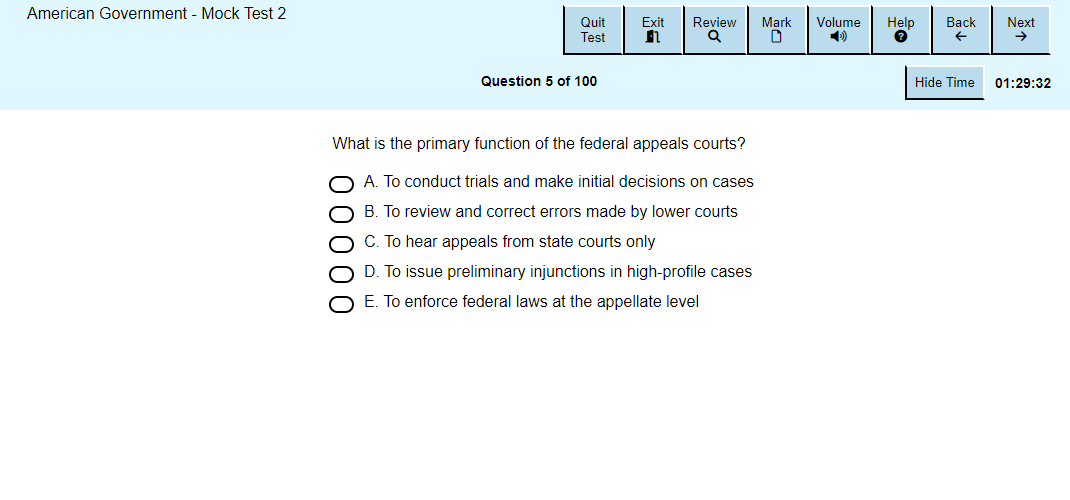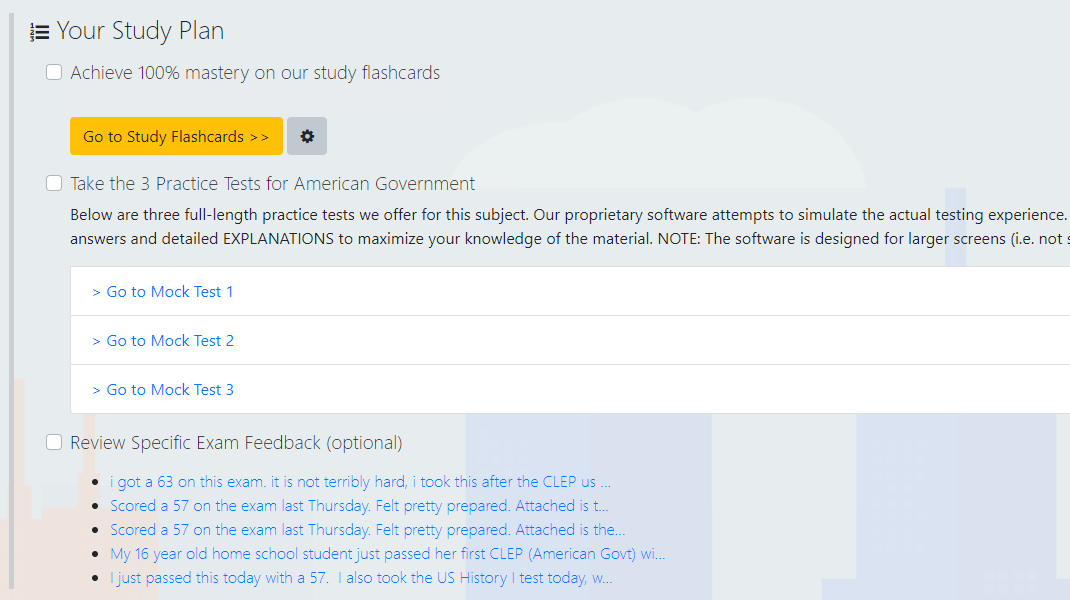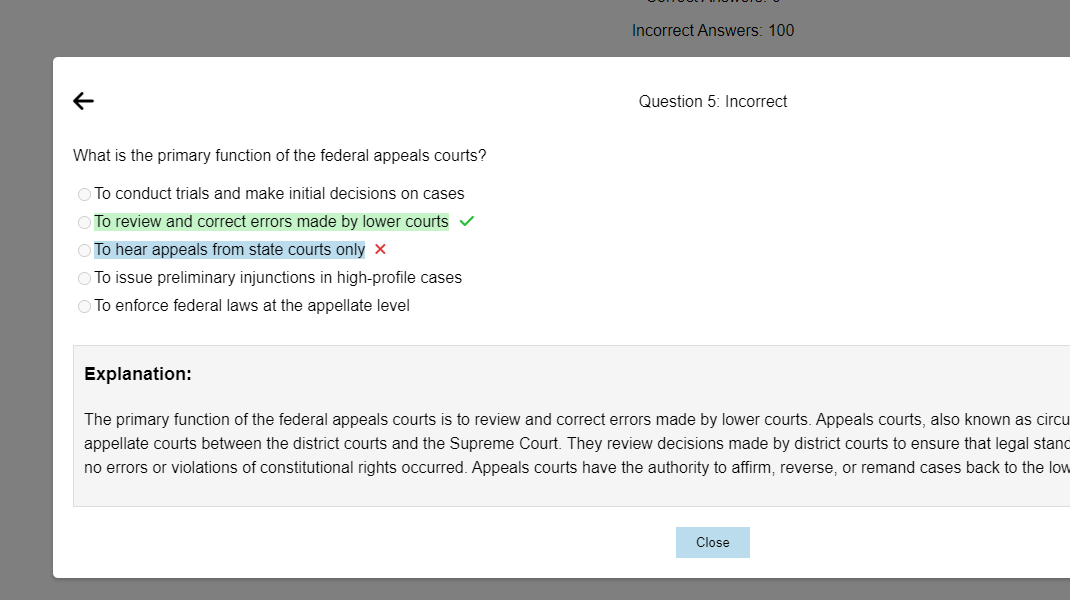Simulate the CLEP* Experience.

Our proprietary CLEP* simulator software is designed to mimic the functionality and appearance of the actual CLEP software. Studying with InstantCert is the closest thing to going in and taking a real CLEP test!
3 Full-length Practice Tests.

Three full-length, timed, practice tests with 95-100 questions each allow you to drill the concepts and test-taking skills you need to ACE your exam. Take and retake these tests until you master the material and Test Day will be a BREEZE!
Pass the Test with NO Prior Knowledge.

We provide a detailed explanation for every question in our practice tests. This is where you patch up any holes in your knowledge. If you thoroughly learn and understand our questions AND explanations, you WILL know everything you need to achieve a passing score on the test!
Customer Test Results for this Exam
1252 users submitted test results since June, 2006.
1098 of those users reported a passing score (88%).
Below are ten of the most recent user-submitted test results. These are unfiltered, real results that were submitted by InstantCert students:
| Date of Exam | Result | Score |
| Nov 17, 2025 | passed | 67 |
| Nov 12, 2025 | passed | 60 |
| Nov 7, 2025 | failed | 40 |
| Oct 17, 2025 | failed | 49 |
| Oct 10, 2025 | passed | 63 |
| Sep 17, 2025 | passed | 64 |
| Aug 21, 2025 | passed | 53 |
| Aug 20, 2025 | passed | 66 |
| Aug 18, 2025 | passed | 67 |
| Aug 15, 2025 | passed | 68 |
Live, unfiltered results posted by InstantCert students
Pass the test, Guaranteed!
Our hundreds of 5-star Google reviews, thousands of student-submitted test results, and tens of thousands of satisfied customers are our “proof in the pudding.” We are so confident, we offer our 30-Day Risk-Free Trial.
Try our Practice Tests at NO Risk
Our American Government CLEP Practice Tests are covered by our 30-Day Risk-Free Unconditional Money Back Guarantee. Sign up now and put them to the test. If for ANY reason, you are not satisfied with our proven exam prep resources, get your money back, no questions asked!
Get Instant Access to Study Guides